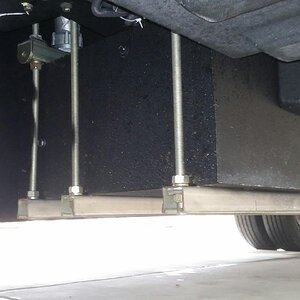Ever seen a vehicle that was warmed up on a hot day dumping water from the tail pipe? I wonder what that's from.

It's got to come from somewhere right? So is it safe to say that same moisture ran through the top end of your engine? A little slips by them oil scraper rings on your piston. Hello bottom end and oil. Now let that vehicle sit a few weeks or months and let that water do what water does to the inside of engines. I'd guess rust and faster wear while your losing HP, gas milage and longevity.
Corn makes ethanol, ethanol vehicle exhaust good, cow eats corn, cow exhaust bad. Right?











